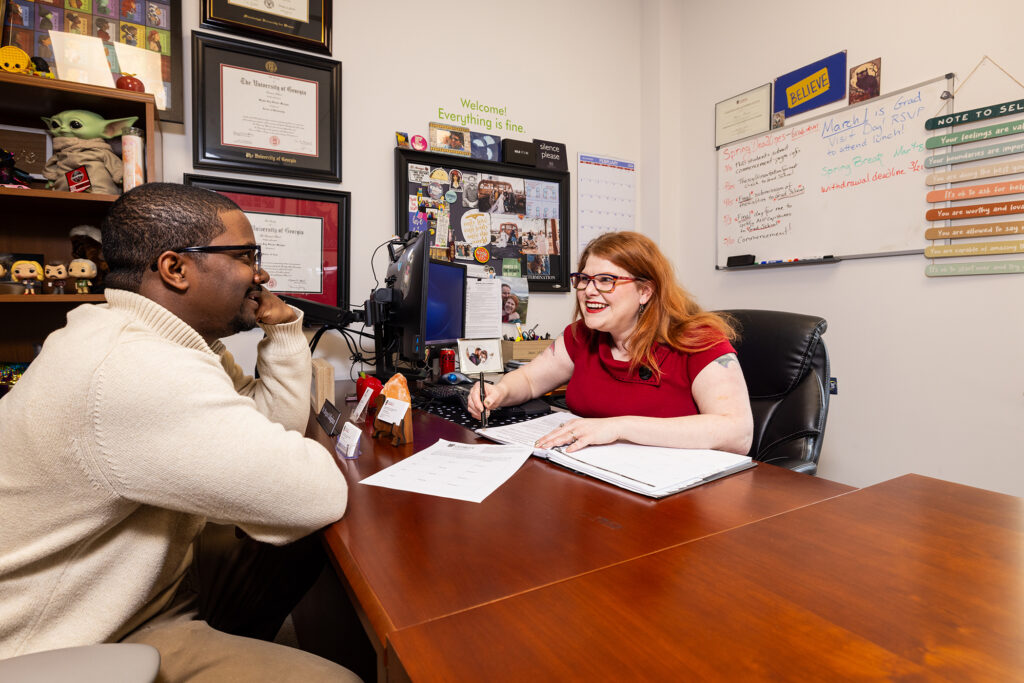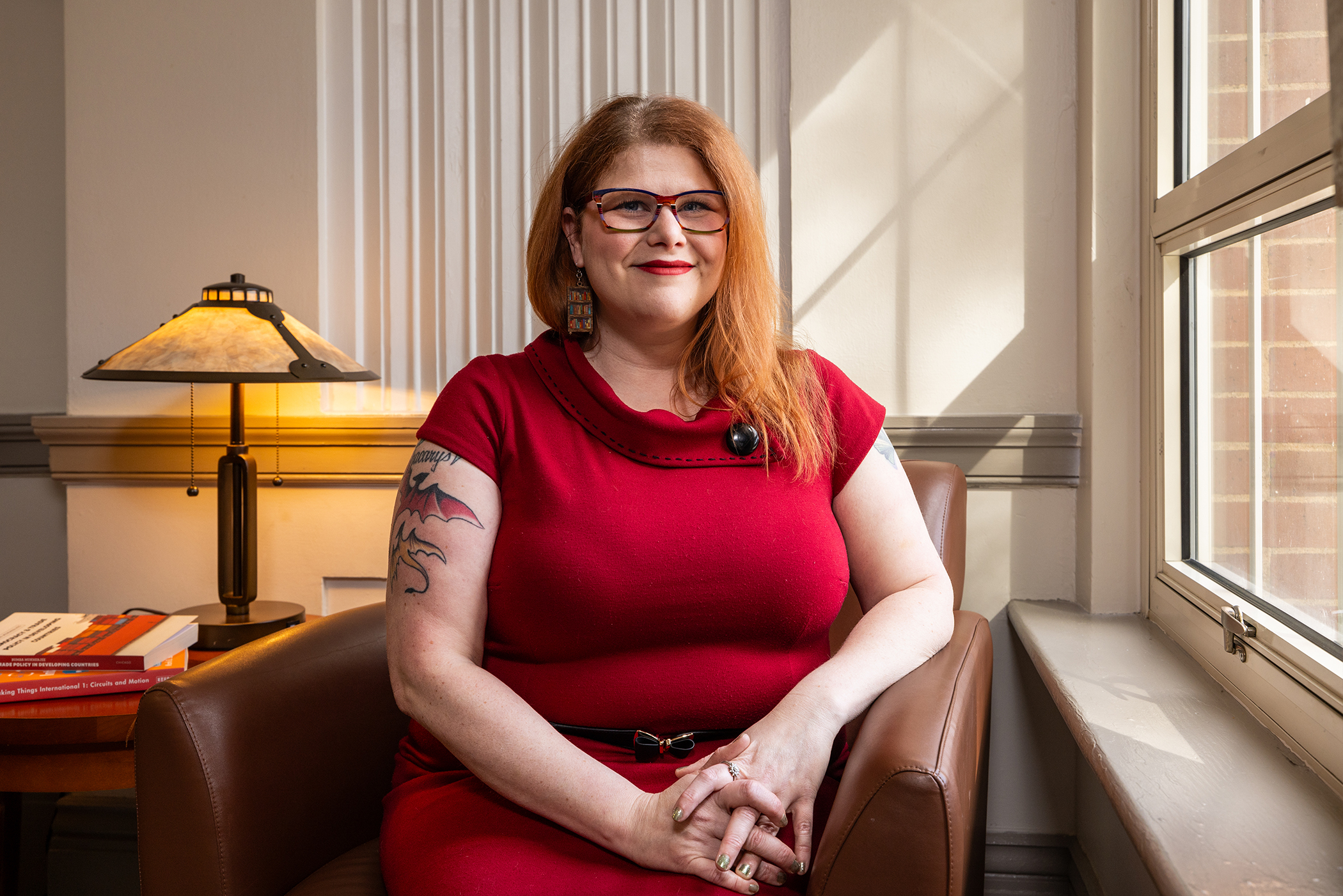As the graduate program administrator and academic advisor for the School of Public and International Affairs, Megan Callaghan makes sure people have a place to go to be heard.
After receiving a master’s degree and a doctorate in English from the University of Georgia, she decided to stay in Athens. The decision led her to a position in the Department of Pharmaceutical and Biomedical Sciences in the College of Pharmacy before she moved to SPIA in 2018.
“It’s been sort of an unusual trajectory, but the through line for me has been that I’ve always enjoyed working with students,” Callaghan said. “That’s what drew me to this position.”
In her role, Callaghan performs a variety of tasks. From scheduling admissions meetings, to sending out letters of acceptance, to coordinating the hiring of research and teaching assistants, Callaghan is part of every step in the graduate program.
During fall semesters, Callaghan focuses her time on getting new students oriented to SPIA’s graduate program. She spends much of each spring semester making sure that her students are on track to graduate.
“We have orientation, and then I help students navigate through the various issues and hiccups that come up,” Callaghan said. “I’m the person people talk to when they don’t know who to talk to.”

Throughout the year, Callaghan ensures that students have the guidance and resources they need to be successful. She sometimes teaches writing workshops to help students perfect their resumes and cover letters.
Her experiences as a graduate student at UGA help inform the way she does her job as an administrator and advisor.
“Every bureaucracy has its own intricacies,” Callaghan said. “I’m sure that the process is different at other universities. But I went through it here myself. I remember the stress of things like keeping up with deadlines or checking the departmental versus the graduate school because sometimes they have different policies or different deadlines.”
Through being proactive, Callaghan is able to alleviate some of the stress that her students may experience. She does this by making information available to students before they even know they need it. She also instills this value in students, often having discussions with them to plan their futures.
“OK, you want to go to graduate school. What does that mean to you? What is your aspiration for your career?” Callaghan will ask undergraduates. “I think sometimes young people have a hard time remembering to think about that because they’re so focused on graduating. I like to ask people to remember why they’re doing that.”
While she does stress the importance of making sure her students graduate and completing paperwork on time, Callaghan believes her interactions with students fuel her.
“The most important part of the job is making sure that students feel validated and heard,” she said. “A lot of people come to me with problems, and they aren’t sure who can solve them. I like having the ability to help.”
When she’s not advising students, Callaghan enjoys playing board games and trivia nights with PhDoom!, her bar trivia team. She also spends her free time sewing. When she couldn’t find a wedding dress that fit her vision, Callaghan decided to make her own wedding dress. She even uses the skill to make elaborate Halloween costumes.
“The most elaborate one that I’ve made recently was probably Wonder Woman,” Callaghan said. “For that I took craft foam and cut out a corset and then used duct tape to make a model of my torso and then used spray paint and Rubberizer to attach about 15 layers of foam in various orientations to look like armor. The thing was so stiff that it would sit up by itself by the time I was done with it.”
Callaghan encourages her students to be creative as well with costume contests and the chance to win prizes.
As an advising resource in SPIA’s graduate program, Callaghan wants her students to know that there are no bad questions.
“I get so many emails from students that begin with ‘this is a stupid question’ or ‘I’m sorry to bother you.’ You’re not a bother. Ask the question,” Callaghan said. “The only type of question that is bad is the one that doesn’t get asked. There is something liberating in asking what you think is a stupid question.”


